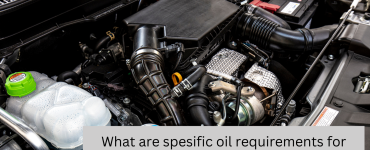High-Mileage Vehicle Oil Changes – Keeping Your Engine Young
When it comes to high-mileage vehicle oil changes, understanding the nuances is crucial for maintaining your car’s longevity and performance. As vehicles rack up the miles, their engines demand more attention and specific care, especially in terms of oil changes. This article dives deep into the essential knowledge for high-mileage vehicle owners, guiding you through the best practices to keep your engine running smoothly.

Key Takeaways
| Aspect | Details |
|---|---|
| Importance | Preserves engine, extends vehicle life |
| Recommended Oil Type | High-mileage oil with conditioners |
| Oil Change Frequency | Depends on vehicle age and condition |
| Special Considerations | Regular check-ups for leaks and wear |
The Necessity of High-Mileage Oil
As vehicles surpass the 75,000-mile mark, regular oil just doesn’t cut it. High-mileage oil is specifically formulated with conditioners that rejuvenate seals and reduce wear. This specialized oil is a game-changer in protecting older engines. Delve deeper into oil types suitable for your specific model like the 2012 Jeep Wrangler or the 2020 Ram 1500 5.7 Hemi.
Change Frequency: More Than Just Mileage
While conventional wisdom suggests every 3,000 to 5,000 miles, high-mileage vehicles might need a more tailored approach. Variables like driving conditions and engine wear play a significant role. Understanding your vehicle’s specific needs is key. For example, SUVs may have different requirements, as detailed in Optimal Intervals for SUVs Oil Changes.
Synthetic vs. Conventional: What’s Best for High-Mileage?
- Synthetic Oil: Offers better protection, especially in extreme temperatures.
- Conventional Oil: Might suffice for regular, mild conditions but less effective for older engines.
- Decision: Synthetic oil, often recommended for high-mileage vehicles, provides superior lubrication and protection. Learn more about this choice in Synthetic vs. Conventional Oil.
Monitoring and Maintenance: Beyond Oil Changes

Regular check-ups are vital. High-mileage vehicles may develop leaks or burn oil faster. Keeping an eye on oil levels and engine health is crucial. Embrace the Basics of Oil Changes for a comprehensive understanding.
Real-Life Example: Honda Accord
A high-mileage Honda Accord might benefit significantly from using the Best Oil for Honda Accord. This ensures the vehicle continues to perform reliably.
The Cost-Benefit Analysis
Investing in the right oil and frequent changes can save money in the long run by avoiding major repairs. Read about the importance of regular maintenance in Change Oil Every 6 Months.
Conclusion about high-mileage vehicle oil changes
Proper oil changes in high-mileage vehicles are not just a routine task; they are a critical component in extending the life and performance of your engine. By choosing the right oil, adhering to a tailored change frequency, and keeping up with maintenance, you ensure your high-mileage vehicle remains a reliable and efficient companion on the road.




